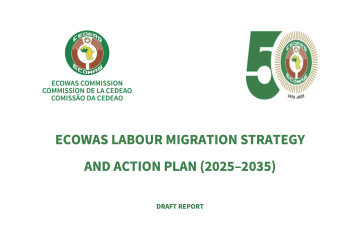Ressources
-
juin 19, 2025
7th MYCM Online Media Accreditation Form
-
juin 19, 2025
7th MYCM Media Visa on Arrival Request Form
- juin 19, 2025
-
mai 15, 2025
ECOWAS LABOUR MIGRATION STRATEGY AND ACTION PLAN (2025–2035)
- février 14, 2025
-
février 12, 2025
38th AU Summit Program of Events
- septembre 10, 2024
- juillet 24, 2024
- juillet 21, 2024
- mai 13, 2024
- mai 13, 2024
- mai 09, 2024
- Page 1
- ››













